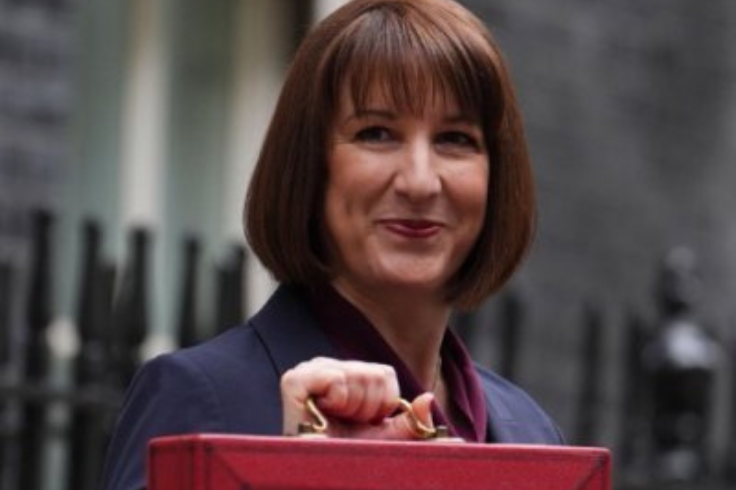Reeves Blocks Wealth Tax Plan: Defies Labour Hopeful, Gambles with Public Finance Chaos
Reeves insists growth is her focus, citing a £103 million warship deal supporting 4,000 jobs

Chancellor Rachel Reeves has rejected a wealth tax to plug a £50 billion ($76.7 billion) fiscal deficit, defying Labour MPs pushing for levies on the ultra-rich. Her decision, announced on 9 September 2025, risks economic instability as public finances teeter.
With mounting pressure, Reeves faces a high-stakes Budget to stabilise Britain's economy.
On 9 September 2025, Reeves dismissed a wealth tax as 'unproven', arguing it may not deliver expected revenue due to wealthy individuals potentially fleeing the UK. Labour MPs, including Richard Burgon, urged a 2% tax on assets over £10 million ($15.3 million), estimating it could raise £24 billion ($36.8 billion) annually.
However, Treasury officials and the Office for Budget Responsibility (OBR) cite international failures, noting eight countries scrapped similar taxes after minimal gains. Reeves' stance aligns with her fiscal rules, requiring day-to-day spending to be covered by taxes by 2029-30.
A post from X by Peter Stefanovic on 21 July 2025 echoed her caution, stating cabinet ministers warned a wealth tax could drive millionaires abroad, yielding little revenue.
Chancellor Rachel Reeves is expected to reject pressure from left-wing Labour MPs to implement a wealth tax after cabinet ministers warned that it would not raise any money because wealthy people would simply leave the UKhttps://t.co/xF6T017OwZ
— Peter Stefanovic (@PeterStefanovi2) July 21, 2025
This rejection has sparked tensions within Labour, with MPs like Rachael Maskell advocating for redistribution to fund public services.
£50 Billion Deficit Stokes Economic Jitters
The National Institute of Economic and Social Research (NIESR) forecasts a £41.2 billion ($63.2 billion) budget deficit by 2029-30, requiring £51.1 billion ($78.4 billion) in taxes or cuts to restore a £9.9 billion ($15.2 billion) buffer. Reeves disputes NIESR's £50 billion ($76.7 billion) 'black hole' claim, asserting the think tank's figures are unreliable. Yet, bond market jitters and 27-year-high gilt interest rates signal investor unease.
Labour's manifesto pledged no rises in income tax, VAT, or National Insurance for 'working people', but U-turns on welfare cuts, costing £5 billion ($7.7 billion), limit spending reductions. 'The Chancellor faces an impossible trilemma,' said NIESR's David Aikman, noting tax hikes on workers may be unavoidable to meet fiscal targets.
This could break Labour's promises, risking public backlash.
With a wealth tax off the table, Reeves is exploring property-based levies, such as reforming council tax or introducing a land value tax, which she backed in 2018. These could target high-value homes, with 50% of £500,000 ($767,100)-plus sales in London. However, critics like shadow chancellor Mel Stride warn such moves could 'punish families' aspiring to own homes.
Alternative Tax Plans Risk Middle-Class Burden
Other options include extending the income tax threshold freeze to 2030, potentially raising £8 billion ($12.3 billion) yearly, or hiking gambling taxes for £3.2 billion ($4.9 billion). Reeves' earlier National Insurance increase on employers, effective April 2025, already drew criticism for stifling growth. 'More taxes are coming,' Stride claimed, accusing Labour of economic mismanagement.
Reeves insists growth is her focus, citing a £103 million ($158 million) warship deal supporting 4,000 jobs. Yet, with inflation at 3.8% and borrowing costs soaring, her gamble against a wealth tax could destabilise public finances. The Budget, due this autumn, will test her ability to balance fiscal rules with Labour's spending promises without alienating voters or investors.
Rachel Reeves' rejection of a wealth tax has ignited debate over fiscal prudence, as she navigates a delicate path to stabilise Britain's economy. Critics argue her cautious approach may stifle growth, while supporters praise her pragmatism in avoiding risky, untested policies that could exacerbate financial uncertainty.
© Copyright IBTimes 2025. All rights reserved.





















